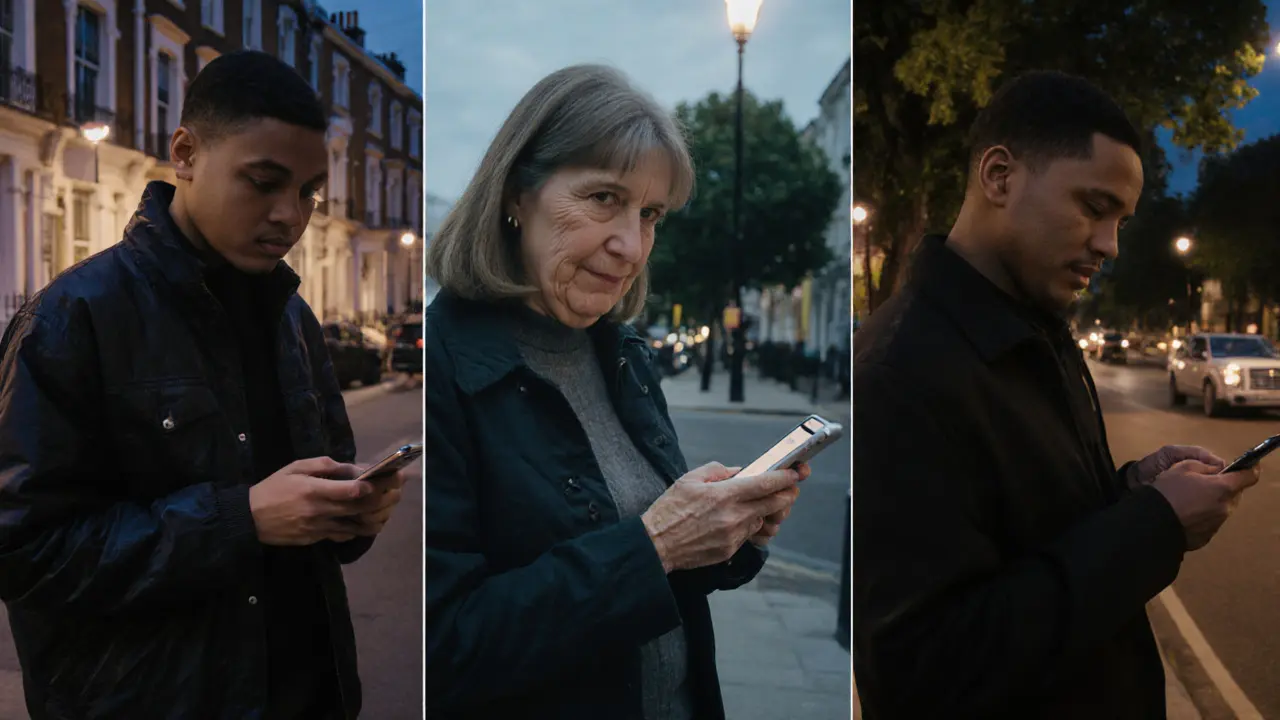16 Nov 2025
- 0 Comments
When people hear "escort in London," they often think of glamour, secrecy, or scandal. But beneath the headlines and stereotypes lies something deeper: a quiet, powerful statement about personal freedom and autonomy. For many women-and yes, some men-in London, working as an escort isn’t about desperation or exploitation. It’s about control. Control over time, income, boundaries, and identity.
It’s Not What You Think
Most assumptions about escorts come from movies, tabloids, or moral panic. The truth? The majority of people working in this space in London are educated, self-directed, and intentional. They’re not victims. They’re entrepreneurs. Many hold degrees, run side businesses, or work part-time while pursuing other goals. A 2024 survey by the UK Sex Workers’ Rights Collective found that 68% of independent escorts in London reported higher job satisfaction than their previous office or retail roles. Why? Because they set their own hours, choose their clients, and keep 90%+ of what they earn.There’s no uniform path. Some start after losing a job during the pandemic. Others leave toxic workplaces where their time and energy were constantly stolen. A few have always wanted to work for themselves but couldn’t find a way that fit their values. For them, escorting became a tool-not a trap.
London’s Unique Landscape
London is one of the few cities in the UK where independent escorting is not only common but relatively safe. Unlike places with strict criminalization, here, the law doesn’t punish the act of selling sexual services-it only targets pimping, brothel-keeping, and soliciting in public spaces. That means most escorts operate privately, using vetted platforms, encrypted apps, and word-of-mouth referrals.Areas like Notting Hill, Chelsea, and Hampstead are known for discreet, high-end services. But you’ll also find escorts working from flats in Croydon, Peckham, or Walthamstow. The city’s size and diversity mean there’s room for every kind of person. Whether you’re a student, a single parent, a retiree, or a non-binary artist-you can find a way to make it work.
What sets London apart is the culture of consent. Clients are expected to respect boundaries. Rejection isn’t seen as a personal failure-it’s standard practice. Many escorts use screening tools, background checks, and client reviews to build trust before meeting anyone. This isn’t chaos. It’s a system built on mutual respect.

Freedom Isn’t Just About Money
Yes, the pay is good. Top-tier escorts in London can earn £150-£400 per hour. But money isn’t the only reason people stay. It’s the flexibility. One woman I spoke with-let’s call her Sarah-used to work 50-hour weeks as a marketing manager. She had two kids, a long commute, and zero control over her schedule. After switching to escorting part-time, she cut her workweek to 12 hours. She now picks up her kids from school, takes them to soccer, and spends weekends hiking in the Lake District. Her income? Higher than before. Her stress? Gone.Another man, James, a former nurse, started escorting after burnout. He didn’t want to be seen as “just another guy.” He wanted to be seen as himself-funny, thoughtful, emotionally present. He found clients who valued conversation more than physical contact. He now earns more than he did in the NHS, and he’s happier.
This isn’t about sex. It’s about connection. For many, escorting is a service industry like any other: you show up, you listen, you provide comfort. The difference? Society tells you it’s shameful. But the people doing it? They don’t feel shame. They feel proud.
The Stigma Is the Real Problem
The biggest threat to escorts in London isn’t the police. It’s not even clients. It’s the shame society forces on them.Many hide their work from family. Some use pseudonyms. Others quit when they land a “respectable” job, even if they’re miserable. The fear of judgment is worse than any legal risk. And that’s the tragedy. Because when you’re forced to lie about how you make a living, you’re not free-even if you’re making six figures.
There are groups fighting back. Organizations like the English Collective of Prostitutes and the London Sex Workers’ Network offer legal advice, mental health support, and safe spaces. They’re pushing for decriminalization-not legalization. Legalization means rules imposed from above. Decriminalization means removing the penalties so people can work safely, without fear.
And slowly, attitudes are shifting. Younger generations are more open. Employers are less likely to fire someone for this work if they’re not causing harm. Social media has given escorts a voice. They’re sharing stories, not just ads. And those stories are changing minds.

It’s Not for Everyone
Let’s be clear: this isn’t a dream job for everyone. It requires emotional resilience. It demands strict boundaries. It’s not glamorous 24/7. There are difficult clients. Long nights. Emotional fatigue. And yes-some people get hurt. But those risks exist in every job. Nurses face trauma. Teachers deal with abuse. Office workers endure burnout. The difference? Society doesn’t tell nurses they’re immoral for doing their job.The real question isn’t whether escorting is right for you. It’s whether society should have the right to decide for you.
What Independence Really Looks Like
Independence isn’t just about having cash in your bank. It’s about having the right to choose how you live, who you serve, and what you value. In London, thousands of people are choosing to define their own worth-not based on old rules, but on their own terms.They’re not asking for permission. They’re not apologizing. They’re showing up, doing the work, and living their lives. And that’s the quiet revolution happening in London’s backstreets and quiet flats.
Freedom doesn’t always come with a parade. Sometimes, it comes in the form of a woman closing her laptop after a long day, turning off her phone, and finally saying: "I’m done. I’m proud. I’m free."
Is working as an escort legal in London?
Yes, selling sexual services is legal in London. What’s illegal is brothel-keeping, pimping, and soliciting in public places. Most independent escorts operate privately, using vetted platforms or referrals to stay within the law. The focus of enforcement is on exploitation-not consensual adult work.
How much do escorts in London typically earn?
Earnings vary widely based on experience, location, and services offered. Independent escorts typically charge between £100 and £400 per hour. Those with strong reputations, niche specialties, or high-end clientele can earn significantly more. Many work part-time, making £2,000-£6,000 a month without needing full-time hours.
Are escorts in London safe?
Safety depends on the individual’s practices, not the job itself. Most professional escorts use screening tools, client reviews, and secure meeting locations. Many meet in their own homes or hotels with strict protocols. The UK Sex Workers’ Rights Collective reports that those who follow safety routines report very low rates of violence. The real danger comes from stigma and lack of legal protection-not the work itself.
Do escorts in London have other jobs?
Yes. Many work part-time while studying, raising children, or running other businesses. Some use escorting as a bridge between careers. Others combine it with freelance writing, photography, or consulting. The flexibility allows people to design their lives around their priorities-not the other way around.
Why do people choose escorting over other high-paying jobs?
It’s not always about money. Many say they value control over their time, the ability to set boundaries, and the lack of corporate hierarchy. Unlike traditional jobs, there’s no boss, no commute, no forced overtime. You decide when to work, who to meet, and what you’re comfortable with. For people burned out by traditional employment, that autonomy is priceless.
